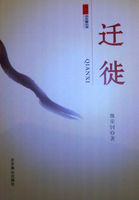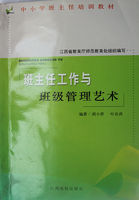To doubt this was political heresy. An incautious word or a foolish joke against the Government was considered a serious crime, and might be punished by a long exile in some distant and inhospitable part of the Empire. Progress should by all means be made, but it must be made by word of command, and in the way ordered. Private initiative in any form was a thing on no account to be tolerated. Nicholas never suspected that a ruler, however well-intentioned, energetic, and legally autocratic he may be, can do but little without the co-operation of his people. Experience constantly showed him the fruitlessness of his efforts, but he paid no attention to its teachings. He had formed once for all his theory of government, and for thirty years he acted according to it with all the blindness and obstinacy of a reckless, fanatical doctrinaire. Even at the close of his reign, when the terrible logic of facts had proved his system to be a mistake--when his armies had been defeated, his best fleet destroyed, his ports blockaded, and his treasury well-nigh emptied--he could not recant.
"My successor," he is reported to have said on his deathbed, "may do as he pleases, but I cannot change."
Had Nicholas lived in the old patriarchal times, when kings were the uncontrolled "shepherds of the people," he would perhaps have been an admirable ruler; but in the nineteenth century he was a flagrant anachronism. His system of administration completely broke down. In vain he multiplied formalities and inspectors, and punished severely the few delinquents who happened by some accident to be brought to justice; the officials continued to pilfer, extort, and misgovern in every possible way. Though the country was reduced to what would be called in Europe "a state of siege,"
the inhabitants might still have said--as they are reported to have declared a thousand years before--"Our land is great and fertile, but there is no order in it."
In a nation accustomed to political life and to a certain amount of self-government, any approach to the system of Nicholas would, of course, have produced wide-spread dissatisfaction and violent hatred against the ruling power. But in Russia at that time no such feelings were awakened. The educated classes--and a fortiori the uneducated--were profoundly indifferent not only to political questions, but also to ordinary public affairs, whether local or Imperial, and were quite content to leave them in the hands of those who were paid for attending to them. In common with the uneducated peasantry, the nobles had a boundless respect--one might almost say a superstitious reverence--not only for the person, but also for the will of the Tsar, and were ready to show unquestioning obedience to his commands, so long as these did not interfere with their accustomed mode of life. The Tsar desired them not to trouble their heads with political questions, and to leave all public matters to the care of the Administration; and in this respect the Imperial will coincided so well with their personal inclinations that they had no difficulty in complying with it.
When the Tsar ordered those of them who held office to refrain from extortion and peculation, his orders were not so punctiliously obeyed, but in this disobedience there was no open opposition--no assertion of a right to pilfer and extort. As the disobedience proceeded, not from a feeling of insubordination, but merely from the weakness that official flesh is heir to, it was not regarded as very heinous. In the aristocratic circles of St. Petersburg and Moscow there was the same indifference to political questions and public affairs. All strove to have the reputation of being "well-
intentioned," which was the first requisite for those who desired Court favour or advancement in the public service; and those whose attention was not entirely occupied with official duties, card-
playing, and the ordinary routine of everyday life, cultivated belles-lettres or the fine arts. In short, the educated classes in Russia at that time showed a complete indifference to political and social questions, an apathetic acquiescence in the system of administration adopted by the Government, and an unreasoning contentment with the existing state of things.
About the year 1845, when the reaction against Romanticism was awakening in the reading public an interest in the affairs of real life,began to appear what may be called "the men with aspirations," a little band of generous enthusiasts, strongly resembling the youth in Longfellow's poem who carries a banner with the device "Excelsior," and strives ever to climb higher, without having any clear notion of where he was going or of what he is to do when he reaches the summit. At first they had little more than a sentimental enthusiasm for the true, the beautiful, and the good, and a certain Platonic love for free institutions, liberty, enlightenment, progress, and everything that was generally comprehended at that period under the term "liberal." Gradually, under the influence of current French literature, their ideas became a little clearer, and they began to look on reality around them with a critical eye. They could perceive, without much effort, the unrelenting tyranny of the Administration, the notorious venality of the tribunals, the reckless squandering of the public money, the miserable condition of the serfs, the systematic strangulation of all independent opinion or private initiative, and, above all, the profound apathy of the upper classes, who seemed quite content with things as they were.
Vide supra, p. 377 et seq.















